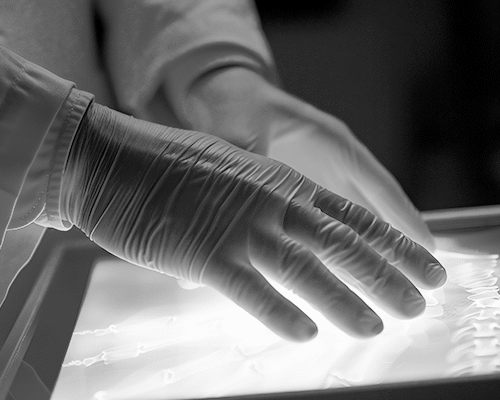A lean magnesium-zinc-calcium alloy ZX00 used for bone fracture stabilization in a large growing-animal model
Authors
Patrick Holweg, Leopold Berger, Martina Cihova, Nicholas Donohue, Bernhard Clement, Uwe Schwarze, Nicole G Sommer, Gloria Hohenberger, Jeroen J J P van den Beucken, Franz Seibert, Andreas Leithner, Jörg F Löffler, Annelie-Martina Weinberg
Over the last decade, demand has increased for developing new, alternative materials in pediatric trauma care to overcome the disadvantages associated with conventional implant materials. Magnesium (Mg)-based alloys seem to adequately fulfill the vision of a homogeneously resorbable, biocompatible, load-bearing and functionally supportive implant. The aim of the present study is to introduce the high-strength, lean alloy Mg‒0.45Zn‒0.45Ca, in wt% (ZX00), and for the first time investigate the clinical applicability of screw osteosynthesis using this alloy that contains no rare-earth elements. The alloy was applied in a growing sheep model with osteotomized bone (simulating a fracture) and compared to a non-osteotomy control group regarding degradation behavior and fracture healing. The alloy exhibits an ultimate tensile strength of 285.7 ± 3.1 MPa, an elongation at fracture of 18.2 ± 2.1%, and a reduced in vitro degradation rate compared to alloys containing higher amounts of Zn. In vivo, no significant difference between the osteotomized bone and the control group was found regarding the change in screw volume over implantation time. Therefore, it can be concluded that the fracture healing process, including its effects on the surrounding area, has no significant influence on degradation behavior. There was also no negative influence from hydrogen-gas formation on fracture healing. Despite the proximal and distal screws showing chronologically different gas release, the osteotomy showed complete consolidation.
Statement of Significance
Conventional implants involve several disadvantages in pediatric trauma care. Magnesium-based alloys seem to overcome these issues as discussed in the recent literature. This study evaluates the clinical applicability of high-strength lean Mg‒0.45Zn‒0.45Ca (ZX00) screws in a growing-sheep model. Two groups, one including a simulated fracture and one group without fracture, underwent implantation of the alloy and were compared to each other. No significant difference regarding screw volume was observed between the groups. There was no negative influence of hydrogen-gas formation on fracture healing and a complete fracture consolidation was found after 12 weeks for all animals investigated.
Keywords
Degradation; Fracture fixation; Growing skeleton; Magnesium-based implants; Pediatric orthopedics
Share this article
